
In the Philippines, provinces are one of its primary political and administrative divisions. There are 82 provinces at present, which are further subdivided into component cities and municipalities. The local government units in the National Capital Region, as well as independent cities, are independent of any provincial government. Each province is governed by an elected legislature called the Sangguniang Panlalawigan and an elected governor.

Camarines Sur, officially the Province of Camarines Sur, is a province in the Philippines located in the Bicol Region on Luzon. Its capital is Pili and the province borders Camarines Norte and Quezon to the northwest, and Albay to the south. To the east lies the island province of Catanduanes across the Maqueda Channel.

Daet, officially the Municipality of Daet, is a 1st class municipality and capital of the province of Camarines Norte, Philippines. According to the 2020 census, it has a population of 111,700 people.

Goa, officially the Municipality of Goa, is a 1st class municipality in the province of Camarines Sur, Philippines. According to the 2020 census, it has a population of 71,368 people.

Pili, officially the Municipality of Pili is a 1st class municipality and capital of the province of Camarines Sur, Philippines. According to the 2020 census, it has a population of 99,196 people.
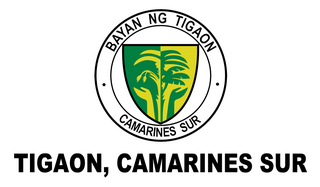
Tigaon, officially the Municipality of Tigaon, is a 2nd class municipality in the province of Camarines Sur, Philippines. According to the 2020 census, it has a population of 60,524 people.
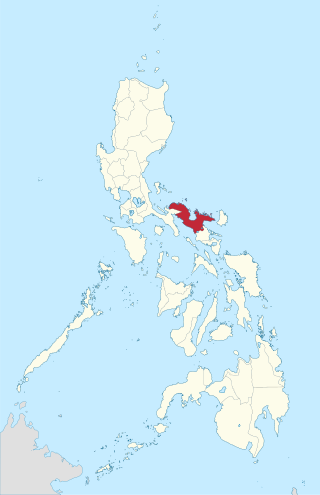
Ambos Camarines, officially the Province of Ambos Camarines, was a historical province in the Philippines found on the northern end of the Bicol Peninsula. It now exists as two separate provinces: Camarines Norte and Camarines Sur.

The National Economic and Development Authority is an independent cabinet-level agency of the Philippine government responsible for economic development and planning. It is headed by the president of the Philippines as chairman of the NEDA board, with the Secretary of Socioeconomic Planning as vice-chairman. A number of Cabinet members, the Governor of the Bangko Sentral ng Pilipinas, the Chairperson of the Metropolitan Manila Development Authority, the Chief Minister of Bangsamoro, the Secretary of Information and Communications Technology, the Chairman of the Subic–Clark Area Development Corporation, and the National President of the Union of Local Authorities of the Philippines are members of the NEDA Board.

The Partido State University, or simply referred to as PSU or ParSU, is a research regional state higher education institution in Partido Area at the province of Camarines Sur, Philippines. It is an ISO 9001:2015 certified public university.

The Technical Education and Skills Development Authority serves as the Philippines' Technical Vocational Education and Training (TVET) authority. As a government agency, TESDA is tasked to both manage and supervise the Philippines' Technical Education and Skills Development (TESD). Its goals are to develop the Filipino workforce with "world-class competence and positive work values" and to provide quality technical-educational and skills development through its direction, policies, and programs.

The Polytechnic State University of Bicol (PSUB) is a state university in the Bicol Region, Philippines. It is mandated primarily to provide higher technological, professional and vocational instruction and training in fisheries, trade, technology, arts and sciences, as well as short term technical and vocational courses, as the Board of Trustees may deem necessary, and shall promote research in the exploration and conservation of natural resources in the province. Its main campus is located in Nabua, Camarines Sur.
Fiscal policy are "measures employed by governments to stabilize the economy, specifically by manipulating the levels and allocations of taxes and government expenditures". In the Philippines, this is characterized by continuous and increasing levels of debt and budget deficits, though there were improvements in the last few years of the first decade of the 21st century.

The Camarines Sur National High School, also called CamHi, is the oldest national high school in Camarines Sur and one of the biggest public secondary schools in the Bicol Region, Philippines, having a student population of 11,899 in the school year 2021–2022. It was established in 1902.

Nueva Camarines is a proposed province of the Philippines to be created out of Camarines Sur in the Bicol Region of the island of Luzon. The proposed province would border Camarines Sur to the west, the Philippine Sea to the north, Albay to the south, and to the east the island province of Catanduanes across Maqueda Channel. Its capital is expected to be Tigaon if the bill is passed.
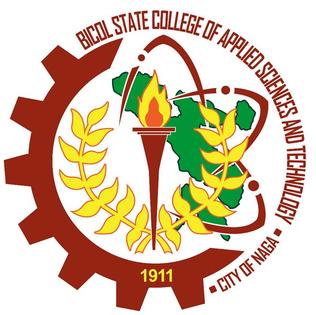
The Southeast Asian University of Technology (SEAUTech), formerly known as the Bicol State College of Applied Sciences and Technology (BISCAST), is a nonsectarian public state college in the Philippines. It is located along Peñafrancia Avenue in Naga City. The current president is Alex H. Navarroza.
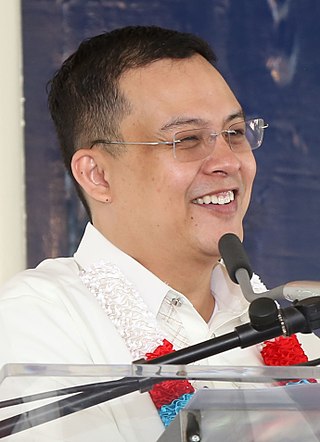
Felix William Buquid Fuentebella is a lawyer and politician who was the former representative of the 4th and 3rd district of the Province of Camarines Sur, which is popularly known as the "Partido District".
José Tria Fuentebella, widely known as "Pepe", was a Filipino politician. He is the first Fuentebella to foray into the national arena of politics.
Felix Abad Fuentebella was the Representative of the Second District of Camarines Sur in the Philippines from 1954 to 1972 and the Provincial Governor of Camarines Sur from 1976 until 1986. He is the son of former Ambos Camarines Governor Mariano Fuentebella and the half brother of Jose Fuentebella and Manuel Fuentebella.
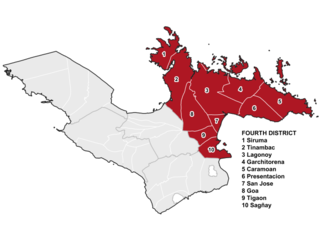
Camarines Sur's 4th congressional district is one of the five congressional districts of the Philippines in the province of Camarines Sur. It has been represented in the House of Representatives since 1987. The district consists of municipalities in the Partido region of eastern Camarines Sur, namely Caramoan, Garchitorena, Goa, Lagonoy, Presentacion, Sagñay, San Jose, Siruma, Tigaon and Tinambac. It is currently represented in the 18th Congress by Arnulf Bryan Fuentebella of the Nationalist People's Coalition (NPC).

The Government Procurement Reform Act of 2003, officially designated as Republic Act No. 9184, is a Philippine law that prescribes the necessary rules to address the lack of transparency and competition in government procurement, eliminate collusion and interference, and lessen the delay in the procurement process by creating the Government Procurement Policy Board (GPPB) and PhilGEPs.















